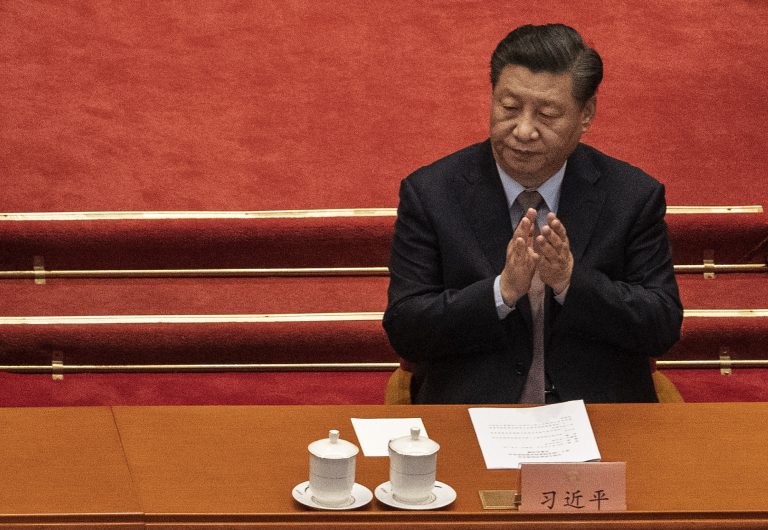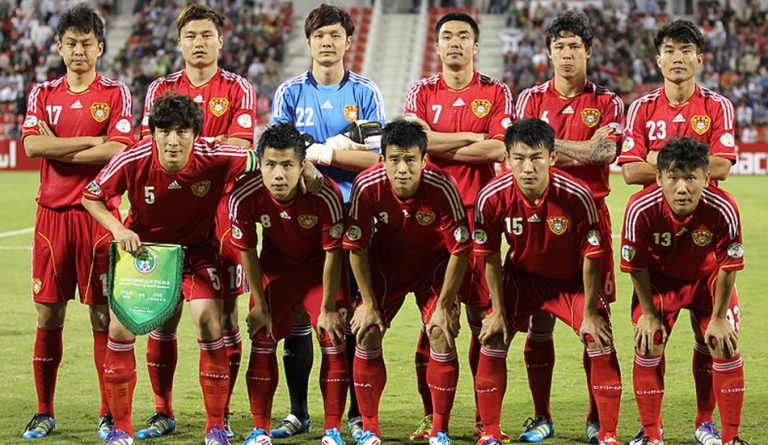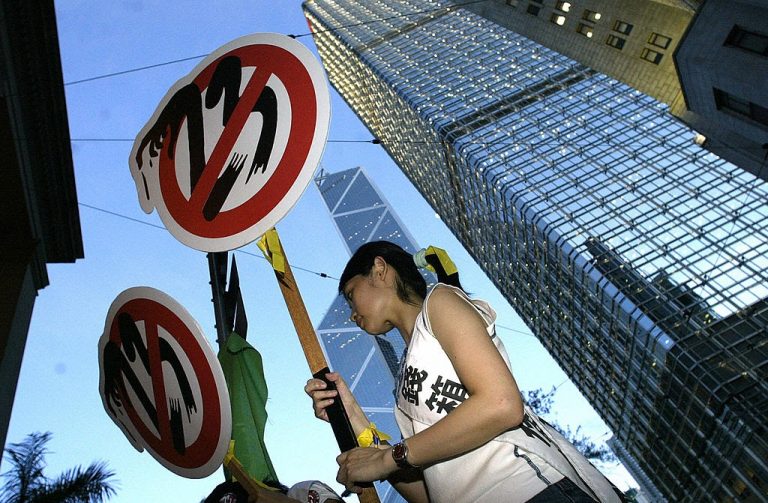With Chinese leader Xi Jinping set to take a norm-breaking third term and appoint trusted officials to key positions at the communist regime’s 20th Party Congress this month, many observers suggest that the 69-year-old general secretary could openly elevate himself to heights not seen since the days of Mao Zedong.
In analyzing an official announcement that the Chinese Communist Party (CCP) will amend its constitution at the 20th Party Congress, some argue that Xi could abandon the “collective leadership” model and revert the regime to Mao-style one-man dictatorship by re-establishing the position of Party Chairman. “To resurrect [the Party Chairman position] would be a symbolic rejection of this post-Mao consensus, and a revealing marker of Mr. Xi’s clout,” writes The Economist.
Many who assess Xi’s political strength, however, also fail to account for the limitations he faces going into the 20th Party Congress. Despite the propaganda hyping him as an effective strongman leader, Xi has fallen short in achieving many of the aims he set out to accomplish upon first taking office in 2012. The CCP’s policies under his watch have earned him a reputation for ruthless crackdowns, weakening of the private sector, and diplomatic notoriety that has done much to align the outside world against the People’s Republic of China (PRC).
There is evidence of widespread and growing intra-Party resentment towards Xi, whose authority and prestige in Beijing are built far more on propaganda than actual results. Messaging put out by official channels also shows waning confidence in the Party’s ideological foundations as Xi continues to struggle with factional rivals in the CCP elite.
READ MORE:
- Xi’s Political Status Intact After Beidaihe, But Crises Deepen Ahead of Party Congress
- China Hands Suspended Death Sentences to Ex-Justice Minister Fu Zhenghua and Other ‘Political Liars’
- 3 Key Takeaways From China’s ‘Two Sessions’ Meetings This Year
‘Consensus’ and resentment
Beijing’s announcement at the end of August that the 20th Party Congress would be held starting Oct. 16 signaled that intra-Party consensus had likely been reached on Xi Jinping extending his tenure and key personnel reshuffles.
Success
You are now signed up for our newsletter
Success
Check your email to complete sign up
Consensus on Xi’s 20th Party Congress agenda items, however, does not mean that the CCP elite are content with his leadership. Developments since the announcement of the 20th Party Congress indicate the existence of simmering resentment towards Xi from both the rank-and-file and regime elites.
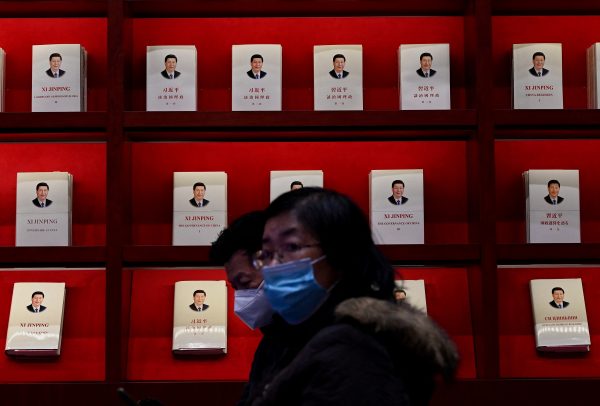
The Chinese-language Voice of America published a piece on Sept. 20 featuring interviews with unnamed CCP princelings and “second generation red,” or offspring of the Party elite. Those elites claim that Xi cut an increasingly unpopular figure in their circles since he amended the PRC Constitution in March 2018 to remove term limits for the PRC president and vice president. Despite the authorities’ efforts to heavily suppress and censor speech, Xi’s “second generation red” peers have allegedly been calling for him to be replaced on occasion. Speaking with VOA, a “second generation red” and long-time worker in the regime establishment who requested to remain anonymous said that 90 percent of her acquaintances do not back Xi’s bid for a third term.
In late September, rumors that Xi had been displaced in a coup or was under house arrest went viral after he supposedly “disappeared” from public view since returning from a trip to Central Asia. Virtually all of them had no evidence or went against the logic of CCP factional struggle and standard Party operations; Xi’s public appearance 11 days after coming back from Central Asia also suggested that he had simply been following China’s 10-day “zero-COVID” quarantine protocol rather than having lost power in some dramatic fashion. Yet the popularity of those rumors hinted that many were eager to see the back of Xi.
- Xi vs. Li? Analyzing Political Rumors About a ‘Split’ Between China’s President and Premier
- In Leaked Recording, Elite Chinese Scholar Laments Crippling Dysfunction of Communist Regime
Xi has responded to lingering opposition to his rule and murmurings of discontent through reassuring propaganda and intimidation. The Xi leadership sentenced six of seven publicly named members of the “Sun Lijun political gang” in the second-to-last week of September and handed to prosecutors the case involving the seventh member on Sept. 28.
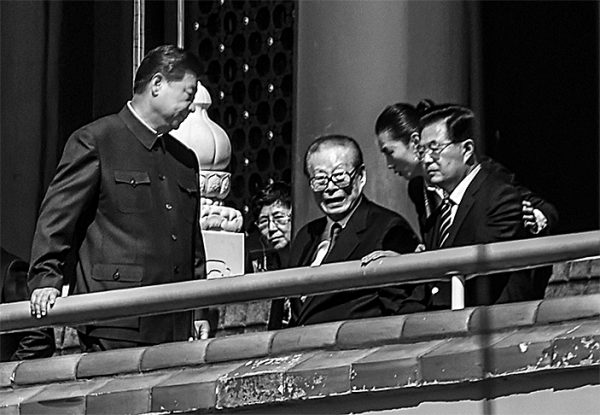
Former public security vice minister Sun Lijun and others in the “political gang” pinned on him belong to the faction of retired CCP leader Jiang Zemin, who retains influence behind the scenes and is Xi Jinping’s chief political rival. Other Jiang faction associates or potential political clients were also investigated or expelled from the Party and their office around the same period.
On Oct. 1, the CCP Central Committee ideological journal Qiushi published a 3,400-character article that was excerpted from Xi’s 32,000-character 19th Party Congress report. Then, Xi urged the “whole Party” to “have the courage to face problems head-on, dare to scrape poison from bone, eliminate all factors that undermine the Party’s advanced nature and purity, and eliminate all viruses that erode the healthy body of the Party.”
READ MORE:
- Xi Tightens Grip Over Chinese Propaganda Ahead of Key Conclaves
- ‘Unified National Market’ Push Exposes Steep Challenge of Reforming China’s Economy
- Premier Li Keqiang Asks Officials to Avoid Communist-style ‘Bureaucratism’ as China’s Economic Crisis Worsens
Xi’s combative words and his recent moves in the public security sector are clearly meant to put on notice senior Jiang faction members who are still at large and others who could be planning to undermine the Xi leadership before the 20th Party Congress.
Concurrently, Xi appeared to offer an olive branch to Party elites who are concerned about the direction that he is taking the regime. In the Oct. 1 Qiushi article, Xi said that the CCP will not “take the old road of closure and rigidity,” which signals to those who back Deng Xiaoping’s “reform and opening up” that he does not plan to revert to Mao Zedong’s outright totalitarianism or turn the People’s Republic of China into a “closed” country through his policies.
Xi also vowed not to “the evil road of changing the [red] flag,” an assurance to left-leaning and Maoist elements in the Party that he will not embrace “Western-style democracy” but will instead “always adhere to and develop socialism with Chinese characteristics.” That Xi finds it necessary to rehash pledges he made during the 19th Party Congress five years ago shows at once that the CCP’s “red” elite lack trust in Xi and that the leader himself has little confidence that the elites are convinced by his program.
Propped up by propaganda
Xi Jinping’s reliance on propaganda to cover up his failed policies and emphasize his political strength underscore his lack of tangible political achievements and the brittleness of his quan wei, a Chinese political term that can be translated as “authority and prestige.”
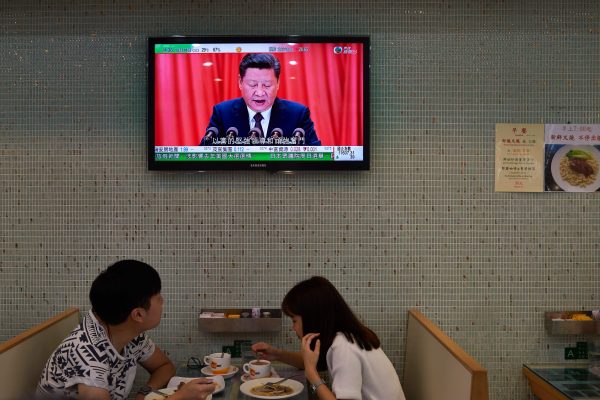
For instance, Xinhua and other state mouthpieces have been busy “spinning tragedy into victory” for the Xi leadership with regard to the disastrous “zero-COVID” measures, crediting “Party Central with Comrade Xi Jinping at the core” for leading the regime through a healthcare crisis. But propaganda outlets fail to mention that Beijing’s policy resulted in a “political pandemic” and sharply worsened the COVID situation for China.
Regime propaganda also avoids the negative economic and geopolitical consequences of “zero-COVID”; China’s economy has noticeably weakened since lockdowns were imposed in the first half of the year following outbreaks in Shanghai and other areas, while foreign capital and manufacturing have been leaving the mainland over concerns about Beijing’s draconian epidemic prevention and control measures.
READ MORE:
- China Fights Uphill Battle to Rescue Its Economy While Keeping ‘Zero-COVID’
- ‘Zero-COVID’ Lockdown in Shanghai Compounds Xi’s Political Dilemma
- China Braces for Bad Harvests as Drought Scours 10 Million Acres of Farmland
The impact of Xi’s “zero-COVID,” however, is most definitely felt by the Chinese people and understood to a greater degree by the Party elite. No amount of propaganda can erase the people’s suffering under the crushing lockdown policies or reverse the unpopularity Xi has incurred as a result.
Adding to China’s domestic malaise, Beijing also faces growing geopolitical pressures from the United States and its allies, as well as challenges in the global economic environment.
The Federal Reserve’s anti-inflationary measures and monetary tightening measures has seen the renminbi fall to a record low against the dollar and is encouraging capital outflows. In response, the People’s Bank of China has warned investors against betting on “a one-sided appreciation or depreciation of the renminbi exchange rate,” while brokers are instructed not to dump shares before the 20th Party Congress.
Meanwhile, Beijing has cut a more conciliatory tone on the topic of “reunification” with Taiwan following a spike in Western solidarity for the Republic of China and Russia’s reversals in its invasion of Ukraine. Wariness towards potential Western reprisals for showing too much ambition could see Xi Jinping settle for less in his efforts to secure more power at the 20th Party Congress; after all, propaganda can only do so much to help his leadership cover up its deficiencies and prop up his quan wei.
- Pelosi’s Taiwan Visit Sharpens Tensions at a Bad Time for Beijing
- China’s ‘Strategic Partnership’ With Russia Is a Growing Liability for Xi
Fading ideology
Far from establishing himself as a second “Chairman Mao,” Xi is unlikely to attempt any serious expansion of his powers over the Party at a time when he is deficient both in terms of ideological confidence and actual accomplishments during his decade in office.
Amendments to the Party constitution at the 20th Party Congress will more likely entrench Xi’s propaganda narratives and themes from his “historical resolution” issued at the Sixth Plenum of the 19th Central Committee, including the “Two Establishes,” “self-revolution,” “new concepts, new ideas, and new strategies for governing the country,” among others. Barring Black Swan events, the odds of Xi being able to appoint himself “Party Chairman” or make other drastic changes to the CCP system are vanishingly low.
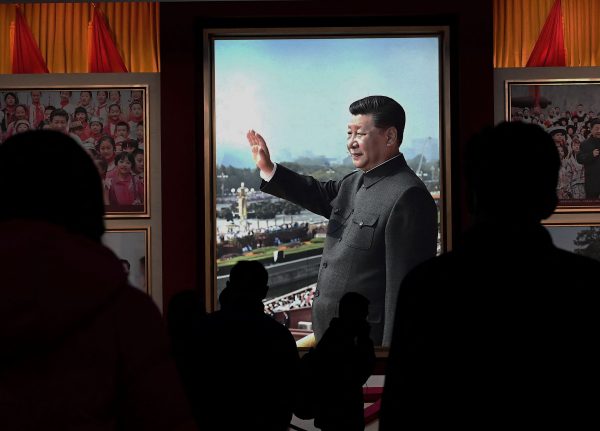
The relentless harping on Marxism-Leninism and “socialism with Chinese characteristic” in Party propaganda points to the bankruptcy of ideology in China and that such rhetoric serves little function other than empty self-reassurance. This is further underscored by Xi’s increasing promotion of Chinese nationalism and “fine traditional Chinese culture” through projects such as the “new Four Histories,” “Rejuvenation Library,” or “Chinese civilization exploration project.” Such efforts not only fly in the face of the CCP’s Cultural Revolution, which aimed to destroy the “four olds” of ancient Chinese civilization; more fundamentally, they contradict the Marxist goal of eventually phasing out all states, nations, and classes.
- Does the CCP’s New ‘Historical Resolution’ Give Xi More Power? Not Really.
- Communist Politics Are Bringing Disaster to China–And Xi Jinping
Above all, the Party fears what might happen should the Chinese people cease to identify their nation and culture with the communist regime. It has expressed particular concern, for example, about the strategy taken by former U.S. secretary of state Mike Pompeo to differentiate between the CCP and the Chinese people. That Xi seeks to promote and “rejuvenate” ancient China’s traditional heritage shows that both he and the broader CCP system feel growing desperation in the fight to maintain control over the Chinese populace through “thought work.”
Xi continuing to insist on stiff adherence to the rhetoric and aesthetics of Marxist thought to trump himself up as a bona fide “Mao 2.0” risks alienating both the Chinese people and officialdom as the CCP faces “great changes unseen in a century,” to borrow the regime’s own words. Soviet communism proved unable to survive the economic and political crises of the 1980s. Mikhail Gorbachev, who despite his reforms remained a committed Leninist to his final days, was superseded by ethnic nationalists who rejected the Communist Party and eventually the Soviet Union itself.
Larry Ong is a senior analyst with New York-based political risk consultancy SinoInsider. He was part of the SinoInsider team that forecasted the 19th Party Congress and 2018 Two Sessions personnel reshuffles with a high degree of accuracy.



